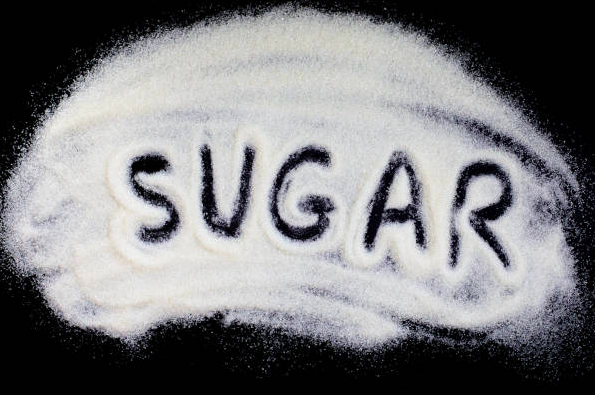Deciding to reduce the consumption of added refined sugar isn’t an easy task. After all, it can hide in many different foods and beverages – even the so-called “healthy” ones.
Refined sugar hides discreetly in most of the products we eat every day. You may be surprised to learn that even non-sweet treats contain large amounts of processed, refined sugars. This includes bread, pasta, store-bought sauces and even healthier options like peanut butter.
With added sugars, the body absorbs them faster or cannot process them quickly enough. These sugars sweeten foods and beverages during processing and preparation. Think lemonade, juice or sweetener in your morning cup of coffee.

Refined sugar: should we eliminate it from our diet?
Added sugar is a contributor to many health problems. In December 2014, MNT reported on a study in the journal Open Heart that added sugar can increase the risk of high blood pressure, even more than sodium. And in February 2014, a study led by the Centers for Disease Control and Prevention (CDC) linked high sugar consumption to an increased risk of death from cardiovascular disease.
Here are a few benefits of cutting out refined sugar:
Helps regulate your blood sugar
For your body to process blood sugar, your pancreas secretes a hormone called insulin. It allows sugar to enter your cells. However, when a lot of sugar enters the bloodstream at once, the pancreas secretes a lot of insulin to keep up with it. If this happens often enough, you can develop insulin resistance.
Eventually, insulin resistance can lead to pre-diabetes and type 2 diabetes.
Reducing sugar consumption, exercising, and eating a healthy diet can improve insulin sensitivity.
Aids in weight management
Several studies show that diets high in added sugar are associated with obesity and overweight.
For your long-term health, limit sugar-sweetened foods and beverages. Reach for products with low-added sugar, such as carbonated water, fruits and vegetables. This can help you control your weight and reduce belly fat.
Swapping sugary foods for healthier alternatives such as fruits, vegetables and healthy grains will help lower blood sugar levels naturally.
Improves your oral health
Sugar that sticks to your teeth destroys your oral health. Over time, the bacteria in your mouth can break down the sugar and produce an acid. This acid gradually destroys the surface of your teeth and causes tooth decay.
If you reduce the amount of added sugar in your diet to less than 10% of total calories per day, you can reduce your risk of tooth decay, as WHO recommends.
Regardless of your sugar intake, maintain good oral hygiene by flossing daily, brushing your teeth twice a day with fluoride toothpaste, and seeing a dentist at least once a year.
Reduces your risk of liver disease
Studies show that excessive consumption of added sugars is associated with nonalcoholic fatty liver disease (NAFLD). This type of liver disease isn’t related to alcohol, heavy metal poisoning, or viral infection.
The liver’s job is to break down fructose, a type of added sugar. Excess fructose – especially from sweetened beverages – is converted to fat in the liver. A fatty liver eventually develops, when too much fat is stored in the liver.
Helps your heart health
Added sugars link to heart disease both indirectly and directly. A diet in which more than 20% of total calories come from added sugars is associated with high triglyceride levels. Elevated triglycerides can increase the risk of heart disease.
Even if you are already at a healthy weight, reducing added sugars can help keep your blood pressure, cholesterol and triglycerides at healthy levels. This may also reduce your risk for heart disease.
Increased Energy
Skipping dessert will have a significant impact on energy levels.
Sugary foods are never the best source of energy intake for the body. Instead, focus on fueling the body with nutrient-dense foods such as whole grains, fruits, lean meats and leafy greens, and exercise also has a positive effect on the brain and body.
By properly supplying the body with nutrients, it will no longer experience sudden bursts of energy, but will instead experience a constant supply of healthy energy.
Enhanced Mood, Mental Clarity, Focus, and Health
Sugar is often a source of reward when emotions run high or stressful situations occur.
However, sugar only promotes a greater imbalance of mood, stress, poor eating habits and fatigue. The more people indulge in their sugar addiction, the more problems they will have with their mental health.
Studies show that 80 per cent of people who give up sugar and other unhealthy foods find that their mental health improves significantly.
Giving up sugar can come with side effects such as “sugar headaches,” meaning the body suffers from sugar withdrawal. If you replace sugary foods with spiritual foods – fish, nuts, leafy vegetables and lean meat – the sugar headaches will soon disappear.
Reduced Inflammation
A worrying disadvantage of sugar consumption is that it increases inflammation in the body.
Inflammation often leads to chronic pain, headaches and food allergies. Research shows that there is a direct link between inflammatory diseases and sugar.
If you give up sugar, you can expect inflammation levels in the body to decrease, as well as nerve, muscle and joint pain.
A combination of exercise, increased daily water intake and reduced sugar consumption is one of the best ways to treat troublesome inflammatory problems and reduce chronic pain in the body.
Is eliminating sugar from our diet healthy?
WHO issued draft guidance in which it would like to halve the recommended daily intake of free sugars from 10% to 5%.
Many health experts believe sugar can be a part of a healthy diet, with some pointing out that sugar also has benefits, rather than avoiding it altogether.
Like all sources of calories, sugar can be a part of a healthy, balanced diet and active lifestyle. Sugar can often help make certain nutritious foods more palatable, which promotes variety in a balanced, healthy diet.

Tips to reduce sugar intake
Health experts recommend reducing sugar consumption to recommended guidelines. Visit AHA for some tips to help you do that:
- Reduce the amount of sugar you regularly add to foods and beverages such as tea, coffee, cereal and pancakes
- Prepare your favourite recipes with less sugar than they prescribe, gradually reducing the amount until you reach the optimal taste for the least amount of added sugar.
- Replace the sugar in cereal or oatmeal with fruit. Instead of refined sugar, you can consume natural sugars from fruits. Next time you are craving something sweet, you can make up a fruit plate with a variety of fruits.
- Whenever possible, opt for whole fruit instead of fruit juice for more fiber and less sugar to optimize blood sugar levels. Prefer naturally lemon or lime-flavoured water over sweetened beverages such as juices and sodas.
- Some healthy alternatives to refined sugar include dried fruits, dates, coconut sugar, honey, maple syrup and jaggery. But even these should only be used in limited amounts.
Read more: 6 amazing natural sugar substitutes for people with diabetes
A Quick Review
Reducing sugar consumption may promote a healthy weight, and reduce the risk of depression and heart disease, among other benefits.
The good news is that you do not necessarily have to give up sugar altogether. A limited amount of added sugar per day is fine. Talk to your healthcare provider about how to limit your sugar intake, especially if you have a specific blood sugar disorder or are at risk of developing one.
Citations
https://www.medicalnewstoday.com/articles
https://miiro.co/blogs/miiro-blog
https://www.ncbi.nlm.nih.gov/pmc/articles/PMC5775006/





